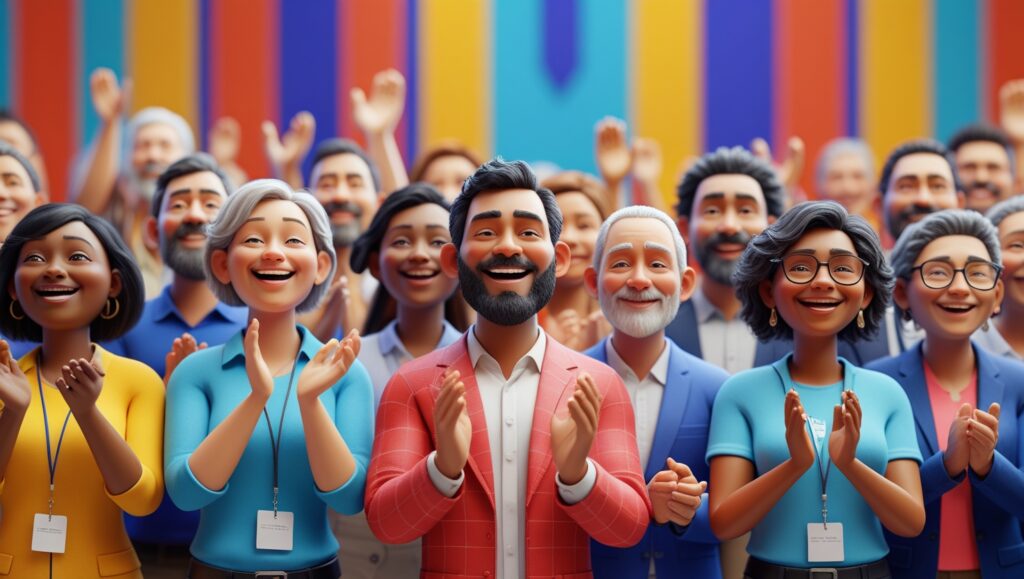How does academic research fuel LGBTQ+ rights and identity formation in society? What role do intersectionality, representation, and queer theory play in shaping progressive discourse?
A GLBT Studies Conference brings together scholars, activists, students, and cultural commentators to critically engage with gender and sexuality through academic, political, and cultural lenses. As debates over rights, visibility, and equality intensify globally, these conferences serve as both a scholarly forum and a platform for real-world advocacy.
GLBT studies conferences are more relevant than ever—bridging gaps between activism and academia.
What Is a GLBT Studies Conference?
A GLBT Studies Conference is an interdisciplinary academic event that focuses on the exploration of gender identity, sexual orientation, queer culture, and LGBTQ+ rights. These conferences are dedicated to studying the historical, political, sociological, and artistic expressions of gay, lesbian, bisexual, and transgender communities.
Core Themes Covered:
- Queer theory and post-structural analysis
- LGBTQ+ history and activism
- Intersectionality and systemic discrimination
- Representation in media, literature, and pop culture
- Public policy and legal frameworks affecting LGBTQ+ communities
- Mental health, wellness, and community resilience
Why You Should Attend a GLBT Studies Conference
Whether you’re a student, academic, health professional, or policy advocate, there’s tremendous value in attending a GLBT Studies Conference:
1. Engage in Transformative Scholarship
Explore the intersections of theory, identity, and lived experience through critical academic discourse.
2. Present or Publish Your Research
Submit your thesis, dissertation, or journal article to share with peers and receive valuable feedback.
3. Build a Supportive Network
Connect with a welcoming, affirming community of scholars, activists, and allies.
4. Participate in Action-Oriented Panels
Workshops and discussions often address pressing global issues, including anti-LGBTQ+ legislation and rights movements.
5. Access Diverse Perspectives
Learn from Black, Indigenous, trans, nonbinary, and global South voices shaping the next wave of queer scholarship.
Must-Attend GLBT Studies Conferences
1. GLBT Historical Society Annual Conference
- Location: San Francisco, California
- Focus: LGBTQ+ archival research, oral histories, and cultural preservation
- Why Attend: A unique opportunity for historians and cultural researchers to connect and collaborate.
2. International LGBTQ+ Research Conference
- Location: Amsterdam, Netherlands
- Focus: Global queer theory, identity politics, and intersectional justice
- Why Attend: One of the most inclusive conferences featuring scholars from every continent.
3. Queer Studies in Education and Research (QSER)
- Location: Toronto, Canada
- Focus: Queer pedagogy, educational policy, and youth LGBTQ+ issues
- Why Attend: Perfect for educators, school administrators, and researchers in educational equity.
4. Lavender Languages and Linguistics Conference
- Location: Cardiff, UK
- Focus: LGBTQ+ language, queer linguistics, and discourse analysis
- Why Attend: Ideal for linguists and communication scholars focused on identity and language.
Who Should Attend a GLBT Studies Conference?
- Professors and graduate students in gender or queer studies
- LGBTQ+ community organizers and non-profit professionals
- Public health researchers and mental health practitioners
- Diversity and inclusion specialists
- Legal scholars and policy advocates
- Artists, writers, and filmmakers addressing identity politics
These conferences are safe, collaborative spaces for all who are committed to equality and social justice.
Emerging Topics in GLBT Studies Conferences
Trans Rights and Gender Nonconformity
Sessions increasingly focus on nonbinary and transgender experiences—highlighting healthcare equity, gender legislation, and cultural inclusion.
Queer Migration and Global LGBTQ+ Rights
Exploring how asylum seekers, refugees, and diasporic communities navigate sexual and gender identity.
Digital Queer Culture
From TikTok to AI-generated art, conferences analyze how queer identities are expressed and shaped online.
Queer Health Disparities
Sessions examine how systems disproportionately affect LGBTQ+ mental and physical health, including HIV/AIDS, access to care, and stigma.
Decolonizing Queer Theory
Critical discussions around Eurocentric frameworks and the importance of indigenous, Afro-diasporic, and non-Western LGBTQ+ perspectives.
Tips for Getting the Most Out of Your GLBT Studies Conference Experience
- Plan Your Sessions Early – Prioritize panels that align with your academic interests or activist work.
- Engage in Discussions – Speak up during Q&A sessions or roundtables to deepen the conversation.
- Connect Beyond Academia – Look for activist or art-based sessions to diversify your experience.
- Share Your Experience – Post highlights on X (formerly Twitter) or LinkedIn using the event hashtag.
- Follow Up Professionally – Reach out to fellow attendees, presenters, or organizers to build lasting connections.
Submit Your GLBT Studies Conference Today
Are you planning a symposium, workshop, or academic event related to queer theory, LGBTQ+ advocacy, or intersectional research?
👉 Submit your event to Conferences Daily and amplify your reach to global scholars, students, and allies.
Frequently Asked Questions (FAQs)
1. What is the goal of a GLBT Studies Conference?
To examine LGBTQ+ identities, politics, histories, and expressions through academic and activist discourse, aiming to foster understanding, equity, and inclusion.
2. Are these conferences inclusive of all gender identities and sexual orientations?
Yes. GLBT Studies Conferences are intentionally inclusive of trans, nonbinary, asexual, intersex, queer, and allied individuals.
3. Can undergraduate students attend or present?
Many conferences welcome undergraduate participation and offer opportunities to present posters, research papers, or creative projects.
4. Do conferences provide scholarships or financial aid?
Some do offer travel grants or registration waivers—especially for students and attendees from marginalized communities.
5. How do I find GLBT-focused events?
Check platforms like Conferences Daily, academic listservs, and LGBTQ+ advocacy networks for current listings.
Final Thoughts
A GLBT Studies Conference is more than just a scholarly event—it’s a vibrant space for truth-telling, research-sharing, and community-building. In an era when LGBTQ+ identities remain contested in public discourse, these conferences foster the critical thought and radical compassion needed to move forward.
Whether you’re publishing your first queer theory paper or organizing community-based storytelling, you’ll find your people here.
Join the movement. Be the voice. Shape the future.
👉 Explore or submit your event now on Conferences Daily















